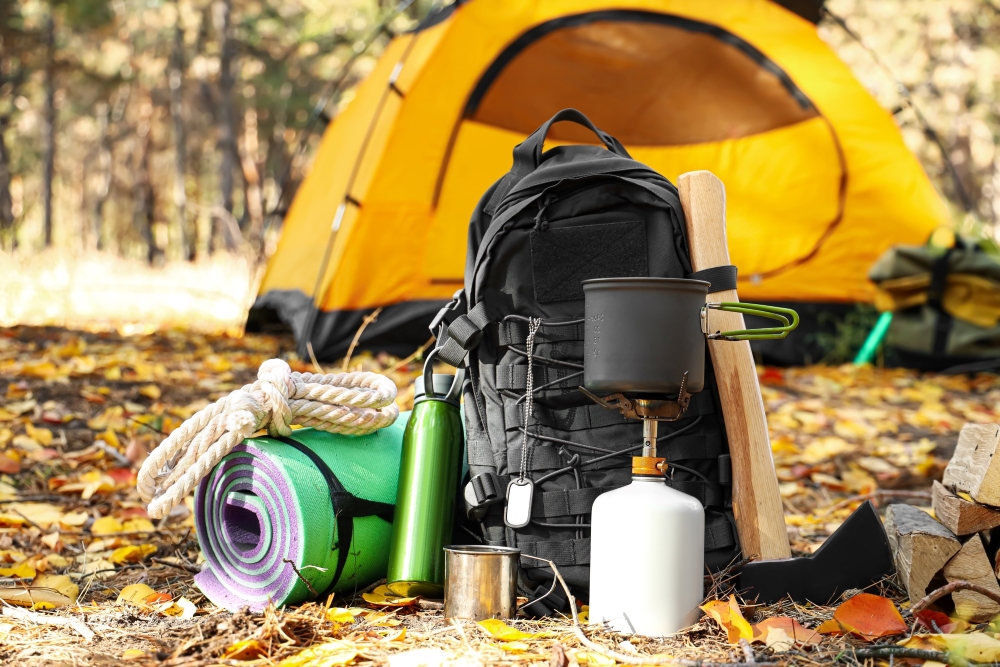Pack Up Your Camping Gear: 9 Steps for Efficient Off-season Storage

As the camping season comes to an end, much like the bonfires that extinguish at the end of a chilly night, campers prepare to pack away their gear until the days of warm temperatures return. It's tempting to just throw everything into a corner of the garage and forget about it until you pull it out again next May, but proper storage of camping gear is essential if you want that gear to be in working condition come the next camping season.
**1. Clean and Dry Thoroughly ** Before even considering safe storage of your camping essentials, ensure they are thoroughly clean and dry. Traces of dirt, moisture, or food left over from a week in the wilderness can lead to mold, which might smell (and look) something like that when you take it out next spring.
Use lukewarm water, dish soap, and a sponge or washcloth to give your tent, sleeping bags, and cooking utensils a good clean.
Let your gear air dry completely before packing it up.
**2. Inspect for Damage ** Assessing your gear's condition during winter storage is an excellent opportunity to check for any rips, loose seams, or broken zippers. Look for the telltale signs of further deterioration and renovate anything that seems iffy before you put it in long-term storage. If it needs fixed, either fix it now or make plans to fix it this spring to ensure you're ready to roll come next hiking season.
**3. Invest in the Right Containers ** The off-season is when your gear can take a hit from dust, pests, and moisture. Protect it with durable, airtight containers. Plastic bins with tight-fitting lids are excellent for storing smaller items like cookware. For larger items such as tents, duffel bags work great. Just remember to store everything in original or compatible containers to protect your investment.
**4. Elevate Your Gear ** Store your gear off the ground if you can, in order to avoid any surfaces that might end up being damp. You can't control the weather, but you can control what happens to your gear if the forecast is unfavorable. The best practices for avoiding weather-related incidents are the same as for flooding:
Store your life jackets in a place where they can stay dry and not be affected by any possible weather conditions.
Stow your backpacks in a high and dry space sheltered from potential outdoor rain.
**5. Sleeping Bag & Tent Care ** As for sleeping bags, don't squash them for long amounts of time. Keep them in big cotton or mesh bags and not in the kinds of containers you'd find in a warehouse. That way, the insulation won't be damaged and the bag won't end up being more fit for a crypt than a campsite. If your bag needs washing, do it in a front-loading washing machine on the gentle cycle. Use non-detergent soap. When washing is done, hang the bag to dry in a place where it can be in contact with a nice breeze.
**6. Properly Handle Cooking Gear ** To prevent pests or rodents from accessing your stored equipment, meticulously clean all cooking implements, stoves, and cookware to remove any traces of food. For your safety, make sure all canisters are disconnected from stoves; then, store them in a location that is cool, dry, and out of reach of direct sunlight.
**7. Maintain Your Insulation ** If you have insulated gear, like down jackets or sleeping pads, store them uncompressed, similar to the way you would store a sleeping bag. If you compress these items for long periods, they may lose insulation value. So, hang them or lay them flat in a cool, dry space.
**8. Mind Your Batteries ** Take out batteries from every sort of electronic device, including flashlights, to stop corrosion and avoid damage. Batteries contain corrosive materials that can leak and cause devices to malfunction. That's why you should really avoid keeping batteries in any device for a long, long time. If they aren't in a good, dry place, batteries can corrode and leak. And if they do corrode and leak, they can ruin the device and give you a nice jolt of electricity when you try to use it.
**9. Label and Organize ** When it's time to retrieve your gear, a bit of organization can pay off big. Label your storage containers and keep an inventory list on your phone. Not only does this make the process more efficient, but it also helps you know when and where to look for any missing or damaged gear.
Everyone wants to refrain from purchasing new camping equipment year after year. If you follow these tips for storing camping equipment, the equipment will look almost like new and smell like it just came from the factory. If you don't follow these tips and you stuff your equipment into the tent and into the garage, it is going to get dirty and possibly mildewy, especially if you have a dome tent that you can't fold or stuff. Winter is here, and we can't go camping for now. But our camping gear is awaiting the call to be taken out into the wild. So make it wait in style!